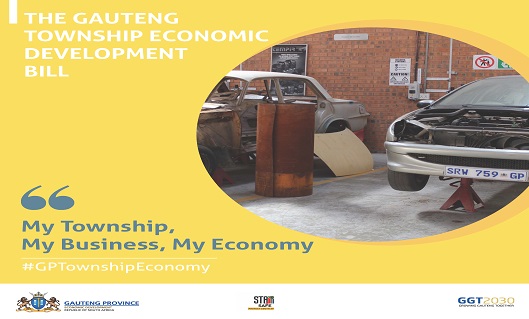Office of the Premier 2021/08/17 - 22:00

Lerato Mailoane
The proposed Gauteng Township Economic Development Bill aims to structurally transform the Gauteng economy to bring the historically disadvantaged majority into productive mainstream activities as owners, wealth creators and asset builders.
The much-anticipated bill, which is out for public comment, intends to change how townships are regulated and governed by opening value chains to local suppliers of appropriate-quality products, offer access to training through retailers' enterprise development programmes, and open up the malls to local businesses.
The Gauteng government will help absorb the costs of certifying these township suppliers and testing products.
This will stimulate township production and access to opportunities, opening them up to traditional bank funding. This retail component of the bill is consequently potentially a game-changer.
According to the department's Director for Inclusive Economy Mathopane Masha, the bill will enable small entrepreneurs in the township to viable and thriving businesses by identifying the types of businesses located in the township and how support should be structured to most immediately address their needs.
He said the research conducted on these businesses highlighted regulatory failure and high costs, while location frequently undermined SMMEs' risk profiling. It identified that there was also a need for funding partnerships to reach SMMEs that have the potential to expand and grow.
The province has established an SMME fund to provide both wholesale and blended finance (in which the fund acts as a first-loss guarantor) to intermediaries that can de-risk lending to township-based firms.
The Gauteng government and Industrial Development Corporation have each committed R250m to the fund, which is at the stage of formalising rules of access and mobilising private sector participation.
"A portfolio of lenders is being identified to share their experience, know-how and technology to reach the most deserving SMMEs. Ultimately, the fund will total R1bn, employing flexible lending policies that take into account not just collateral but other non-conventional factors.
"It will provide working capital for township-based firms, stock credit and purchase order financing," Masha explains.
There will also be separate funds for the township backyard real estate and taxi economy initiatives.
Given the influx of people at taxi ranks the bill will seek to promote incentives for
municipalities to develop taxi ranks into micro-CBDs, enabling the taxi economy to use its scale to grow supporting value chains and industries.
Masha said the commercial rapid land release initiative will also free up publicly owned land — both vacant land and buildings such as disused schools — for developmental use in township areas.
Furthermore, the bill aims to confer rights on the many informal and often illegal backrooms in township homes so that landlords can invest in and upgrade them into income earners.
This process of densification will also assist with upgrading social and physical infrastructure, such as fibre connections, and physical infrastructure. It will look at alternative forms of affordable housing that use advanced technology.
RELATED NEWS
No related news

